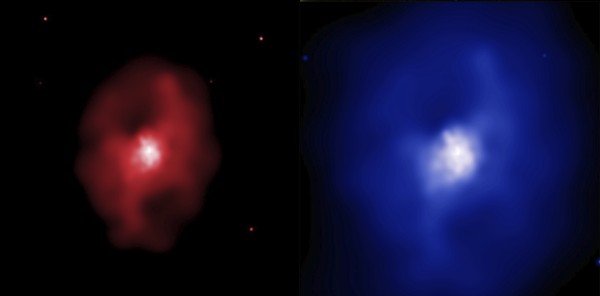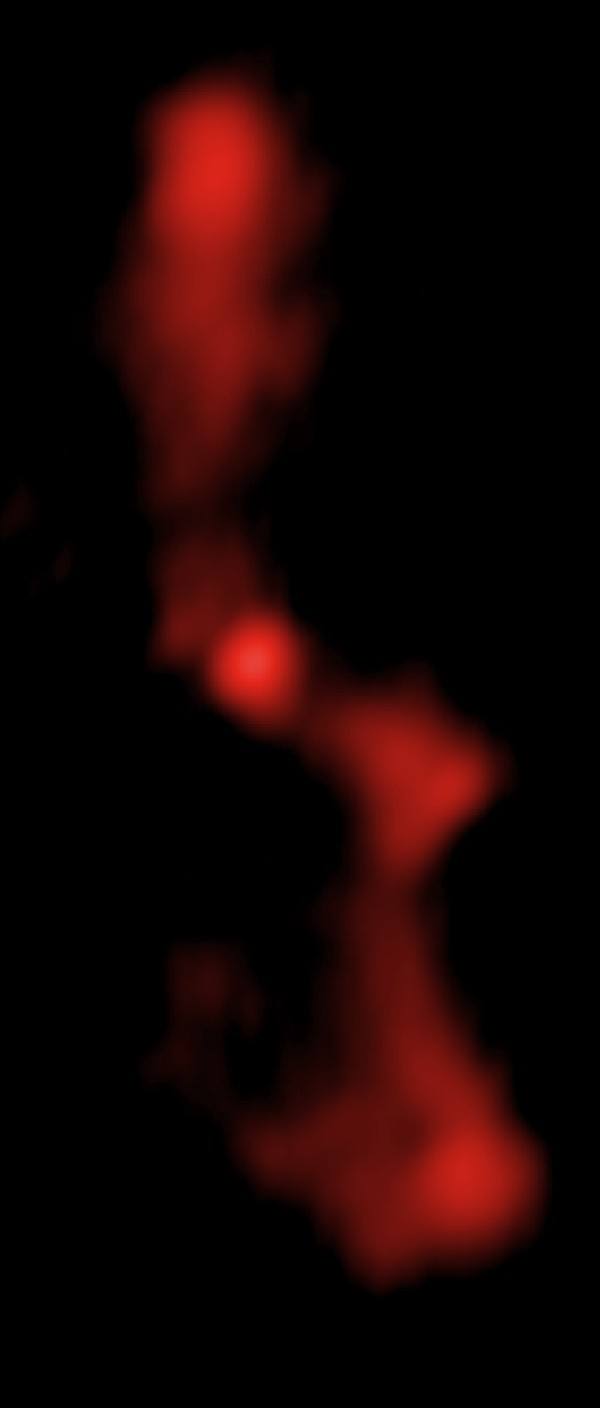“The world exploded into billions of atoms, and when it rearranged itself, it may have looked the same, but really, it was a Whole New World.” -Claire LaZebnik
At the center of almost every galaxy is a supermassive black hole (SMBH); at the center of almost every cluster is a supermassive galaxy with some of the largest SMBHs in the Universe. And every once in a while, a galactocentric black hole will become active, emitting tremendous amounts of radiation out into the Universe as it devours matter.
 Image credit: NASA/CXC/Ohio U./B.McNamara, via http://chandra.harvard.edu/photo/2005/ms0735/ and http://chandra.harvard.edu/photo/2006/ms0735/.
Image credit: NASA/CXC/Ohio U./B.McNamara, via http://chandra.harvard.edu/photo/2005/ms0735/ and http://chandra.harvard.edu/photo/2006/ms0735/.
This radiation can cut across the spectrum, from the X-ray down to the radio, and yet, in one case, the most striking thing of all is that there's a black hole that appears to have been active for hundreds of millions of years, something unheard of!
 Image credit: NRAO/VLA, and L. Birzan and team (Ohio University), via http://www.spacetelescope.org/images/opo0651e/.
Image credit: NRAO/VLA, and L. Birzan and team (Ohio University), via http://www.spacetelescope.org/images/opo0651e/.
What's causing this monstrosity at the heart of MS 0735.6+7421? Come find out on Mostly Mute Monday.
- Log in to post comments

Kevin. Normally SMBH growth is thought to be self-limiting, via the mechanism of energy release leading to gas being expelled from the vicinity. Does anyone have any plausible conjectures about why/how process apparently failed in this case?
“And every once in a while, a galactocentric black hole will become active, emitting tremendous amounts of radiation out into the Universe as it devours matter.”
I thought black holes couldn’t emit anything.
Yawn.
Ever heard of the accretion disc of a collapsed star? I thought you were "educated"?
How does dark matter interact with a black hole?
And dark energy
Dark matter is still 100% matter and still interacts gravitationally, therefore it will work exactly as non-dark matter does with a black hole.
As to dark energy, that's the energy expressed as the expansion of space (of the entire universe), which isn't affected by gravity per se, therefore will not be affected by a black hole.
A single DM particle will interact with a BH the same as an isolated ordinary particle. However once the density of ordinary particles becomes high enough that they collide with each other in the BH vicinity, then the odinary matter starts to form into an accretion disk, whereas, the DM particles will continue on their
ballistic orbits (which may or may not interesect the event horizon).
Aye, Omega, exactly.